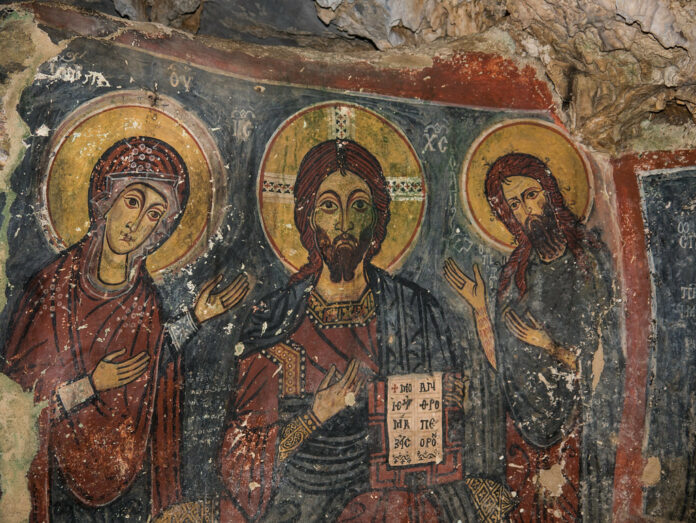A Journey Through Time and Legend
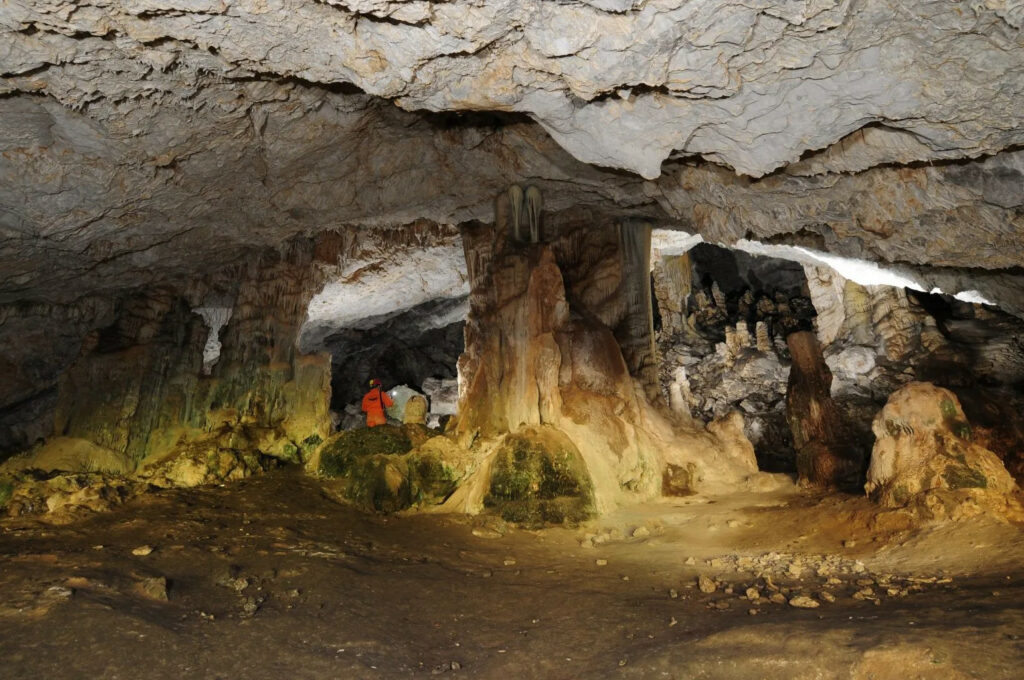
Nestled on the western coast of Kythira, Greece, lies a natural wonder that has captivated visitors for centuries – the Cave of Saint Sophia. This enchanting cavern, located in the tranquil Kokala Bay, is one of three caves on the island bearing the same name, each shrouded in mystery and local lore.
A Pioneering Discovery

In 1930, the cave gained scientific significance when it became the first in Greece to be studied by Ioannis Petrohilos and his Kytherian wife Anna, pioneers of Greek speleology. Their groundbreaking work laid the foundation for future exploration and understanding of this remarkable site.
A Sanctuary of Faith and Art
Ancient Frescoes and Sacred Spaces
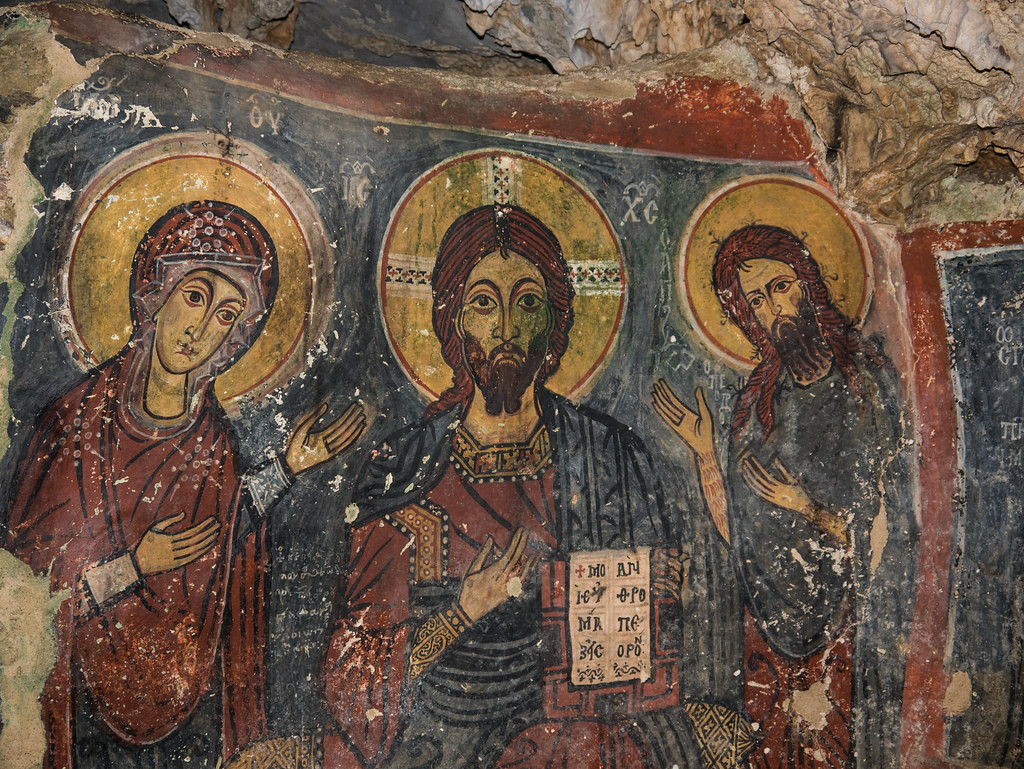
As early as the 13th century, the cave’s antechamber was transformed into a place of worship. Its walls are adorned with well-preserved frescoes depicting saints, including Saint Sophia and her daughters Love, Faith, and Hope. The cave’s consistent environment has kept these artworks in excellent condition, offering visitors a glimpse into centuries-old devotion.
A Chapel of Hope and Healing
Within the cave stands a chapel built in 1875, near a natural basin where water collects. This water, believed to have healing properties, has drawn pilgrims seeking cures for their children’s ailments, contributing to the cave’s reputation as a place of miracles.
Legends and Lore
A Haven for Star-Crossed Lovers
Local myths tell of Paris and Helen of Troy finding refuge in the cave, supposedly celebrating their wedding in its vestibule. Some even claim that Helen established the first foundling nursery here, caring for abandoned infants.
Pirate Treasures and Hidden Passages
Tales of the notorious pirate Barbarossa hiding his treasure within the cave add to its mystique. Local legends also hint at secret underground passages connecting this cave to its namesakes elsewhere on the island.
A Natural and Biological Marvel
Breathtaking Geological Formations
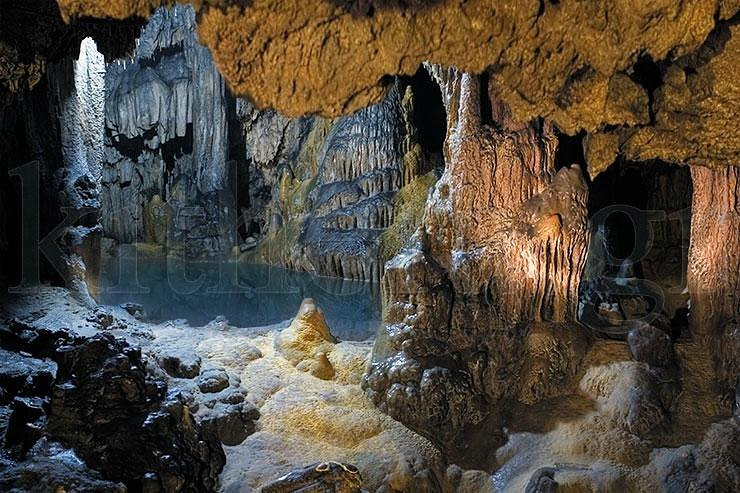
Visitors to the cave are treated to a spectacular display of nature’s artistry. The interior boasts polymorphic decorations and striking lithospheric formations in black, white, and red, reflecting the unique geology of the area.
Home to Rare Species
The cave is not just a geological wonder but also a biological treasure trove. It houses a rare endemic species, Kythironiscus Paragamiani, named after a prominent Greek biologist, adding to its scientific importance.
Conclusion
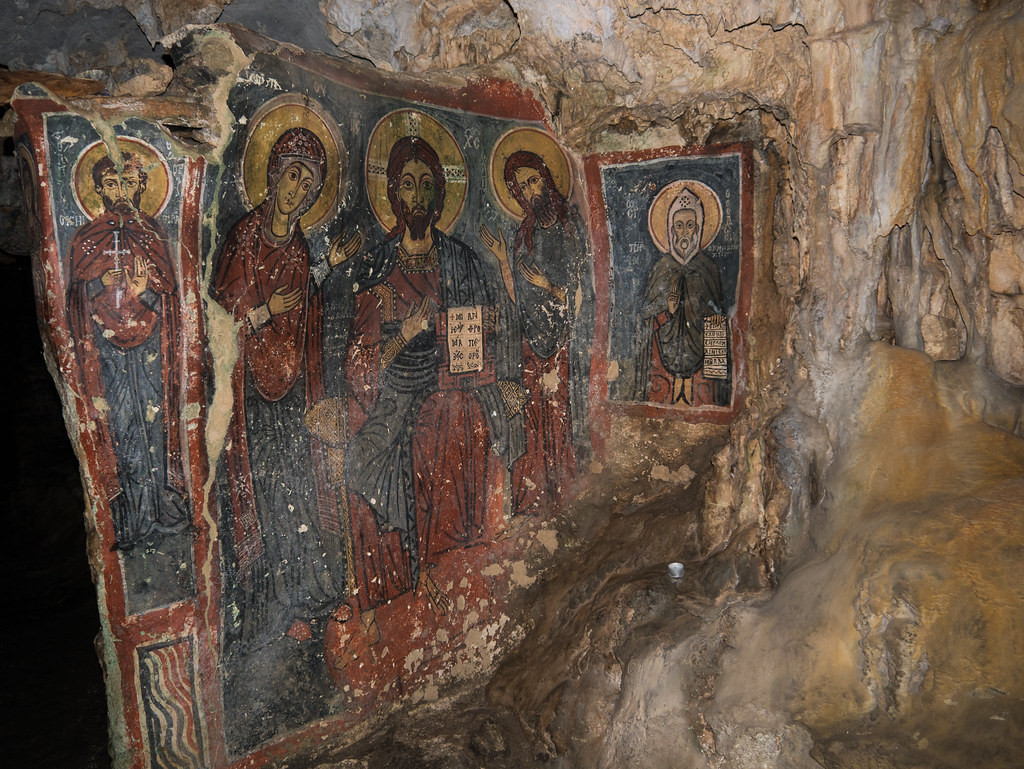
The Cave of Saint Sophia in Kythira is more than just a natural formation; it’s a living museum of history, faith, and legend. From its ancient frescoes to its rare wildlife, every aspect of the cave tells a story of the island’s rich cultural and natural heritage. For those seeking to unearth the mysteries of Greece’s past while marveling at the wonders of nature, this enchanting cave offers an unforgettable journey through time and imagination.
